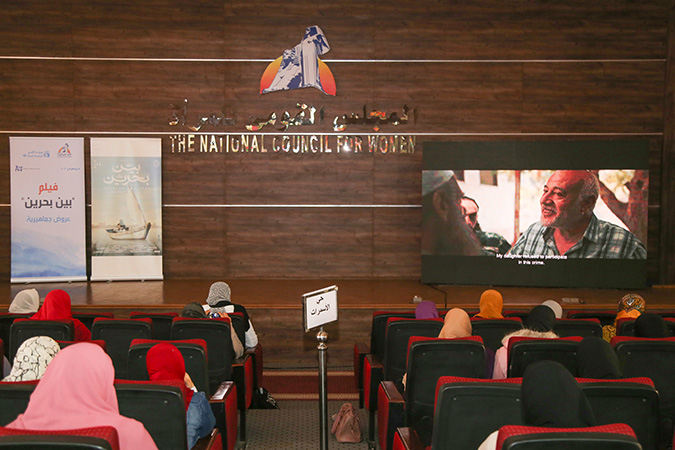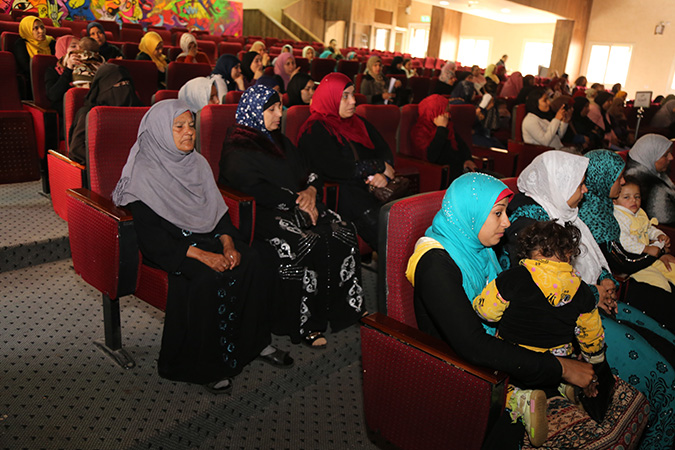Art imitates life as FGM film screenings and group discussions begin
Date:

The small coffin is carried towards the burial place by the deceased girl’s father who is struggling to keep his eyes open due to the stream of tears running down his cheeks. He is surrounded by sobbing men and women all wearing black, a devastated grandmother and a mother – still in her clothes from the same morning- in utter disbelief that Shahd is now gone.
This scene from the award-winning film Bein Bahrain (Between Two Seas), produced by UN Women in collaboration with the National Council for Women (NCW) and Axeer, sheds light on the different forms of violence faced by Egyptian women and girls. It was screened at the premise of the NCW on the occasion of “Zero Tolerance against female genital mutilation (FGM) Day” to 100 women from the outskirts of Greater Cairo – as the first in a series of field-based screenings in Egypt.
The film comes on the heels of the tragic real-life case of a girl, Nada, who recently died in Egypt after undergoing FGM.
In an effort to capture whether perceptions changed by viewing the film, the screening was followed by a guided focus group discussion to gauge women’s reaction to the film. The discussion revealed that the film mirrors the reality that several women and girls live. But, more importantly, it encouraged some viewers to change their mind about submitting their daughters to FGM.
“I had planned to take my 11-year-old daughter tomorrow to the doctor to perform FGM, but now that I have seen this film it has affected me and I will never do such harm to my daughter,” said 31-year-old Mahasen Kamal*, who said she herself survived FGM.

Several women described the stigma that girls face if they are not cut and stated that FGM stems from destructive social norms. “A girl that does not undergo FGM is called names,” said another 35-year-old survivor who identified herself as Faiza Magdy*. “This is the community that we live in and we don’t have much control over it.” Responding to Magdy’s statement, a young girl stood up from the crowd and stated “I will say NO if anyone tries and approaches me for FGM and will not allow this to happen to me!”.
The religious discourse showcased in the film was criticized by the women as one of the elements that can further perpetuate violence against women. They added that a good religious leader, on the other hand, can disseminate messages that support equality and good practices.
When asked which scenes had the most impact on viewers, the women stated that the death of 12-year-old Shahd following an fatal FGM procedure, as well as her mother wanting to go back to school to learn but having to hide this from her husband and mother, reinforced the notion of how taking away the right to education is a form of violence against women in itself. They emphasized that education is a cornerstone in reducing this harmful practice in their communities and that awareness-raising among men and older women is crucial, as they are considered the decision-makers when it comes to harmful practices such as FGM.
The film was generously funded by USAID and the Government of Japan.
*Note: Name changed to protect the identity of the survivor.